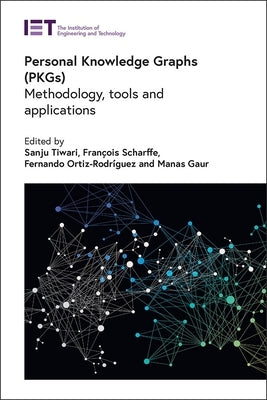Before you leave...
Take 20% off your first order
20% off
Enter the code below at checkout to get 20% off your first order
Discover summer reading lists for all ages & interests!
Find Your Next Read

Since the development of the semantic web, knowledge graphs (KGs) have been used by search engines, knowledge-engines and question-answering services as well as social networks. A knowledge graph, also known as a semantic network, represents and illustrates a network of real-world entities such as objects, events, situations, or concepts and the relationships between them. This information is usually stored in a graph database and visualized as a graph structure, prompting the term "knowledge graph". Knowledge graphs structure the information of entities, their properties and the relation between them.
Personal knowledge graphs (PKG) encode the same information at an individual level and therefore vary widely. PKGs require the processing of each person's individual information and is constructed in an automated fashion. Once a PKG is constructed, it will be integrated in broader purpose KGs. A PKG is a representation of all relevant common-sense knowledge and personal data for a user and can support the development of innovative applications such as a digitalized personalized coach. It empowers stakeholders to make more effective decisions.
This book explores in a structured manner the global advanced research around PKGs to support the development of innovative digitalized personalized applications such as personal banking, personalized book-keeping, daily health-related activities monitoring and goal management tracking. The authors present methodologies, tools and applications including innovative topics tailored for PKGs such as named entity recognition and linking, construction approaches, modelling of personalization and context-awareness, evaluation approaches, relation extraction techniques, query answering in user specific knowledge graphs, knowledge representation and reasoning (KRR), visualization tools, integration tools and techniques, and fact summarization.
The book provides systematic coverage of this complex topic for researchers, scientists and engineers in both industry and academia working in data science, ICTs, knowledge engineering, semantic web, reasoning, information retrieval, and machine and deep learning with a focus on knowledge graphs. Advanced students with an interest in the field will also find this to be a useful resource.
Thanks for subscribing!
This email has been registered!
Take 20% off your first order
Enter the code below at checkout to get 20% off your first order